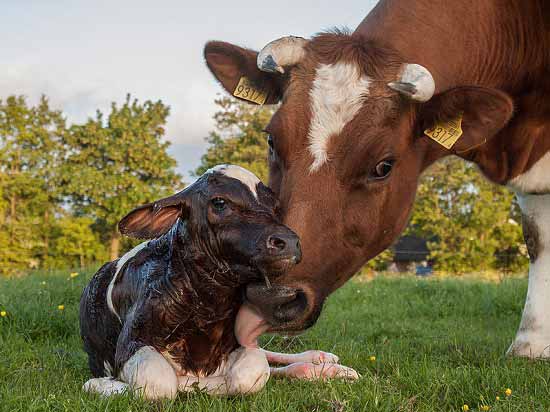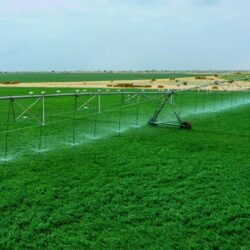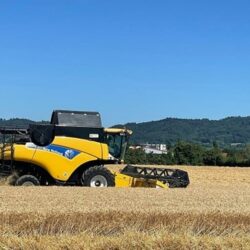Nairobi, Kenya: A ground-breaking initiative to transform livestock breeding across Africa has been launched, promising to unlock the vast genetic potential of the continent’s animal resources. The African Animal Breeding Network (AABNet), a collaborative platform for animal breeding professionals, was unveiled with considerable fanfare during the recent inaugural CGIAR Science Week in Nairobi.
The launch event, expertly moderated by Chinyere Ekine-Dzivenu, a statistical geneticist at the International Livestock Research Institute (ILRI), brought together key figures in the field.
In his opening address, Appolinaire Djikeng, ILRI director general and CGIAR senior director of livestock-based systems, lauded the collaborative spirit that had brought AABNet to fruition. He specifically acknowledged the crucial contributions of individuals from ILRI, Egerton University, Scotland’s Rural College, and the University of Edinburgh, highlighting the pivotal role of the Centre for Tropical Livestock Genetics and Health (CTLGH) in establishing this vital network. The initial seeds for this ambitious network were sown at a meeting in Ghana back in 2018, with its realization now documented in a recent paper published in Nature Genetics.
Djikeng underscored the critical role of genetic improvement in tackling the persistent animal health and nutrition challenges that plague Africa’s livestock sector. He articulated AABNet’s two primary objectives: to cultivate local expertise and to maximize the utilization of animal genetic resources within the Global South.
Mizeck Chagunda, director of CTLGH and chair of tropical livestock genetics at the University of Edinburgh, eloquently presented how AABNet could revolutionise livestock production across Africa by strategically leveraging the continent’s rich tapestry of livestock diversity.
He compellingly argued that while proper feeding and nutrition are undoubtedly essential, possessing the right genetic makeup is paramount for the long-term viability of livestock farms.
“The wrong genetics on any farm is costly,” Chagunda asserted, pointing out that unsuitable livestock genetics can lead to a cascade of inefficiencies, including increased methane emissions, the wasteful use of water, and the production of nitrous oxide within the farming system.
“There is really a responsibility for us to transform the food system, using livestock genetics, in order to make sure that those inefficiencies are taken out of the system,” Chagunda passionately stated.
The overarching vision of AABNet is to spearhead the development and widespread adoption of genetically improved livestock and broader genetic enhancement solutions throughout Africa.
The compelling reasons for AABNet’s existence are clear: demand for livestock-derived food in Africa is projected to soar by a staggering 80% between 2010 and 2030. The conventional approach of simply importing genes often operates under the flawed assumption that “one breed fits all” environments, neglecting the crucial adaptations of local breeds. Furthermore, African countries have yet to fully exploit the power of crossbreeding to enhance productivity and resilience. The establishment of robust breeding programs across the continent has been hampered by the significant levels of investment and the vast amounts of data and record-keeping required.
AABNet is poised to play tangible and transformative roles in facilitating multi-country genetic evaluations, fostering professional development among breeders, advocating for the importance of genetic improvement, raising awareness, promoting business development within the sector, and forging crucial collaborations, networks, and partnerships.
“Genetics, data, smart technologies, and collaboration are the roots for resilient and transformative African livestock production systems. AABNet is the thread that ties all this together,” Chagunda powerfully concluded.
Raphael Mrode, ILRI principal scientist in quantitative dairy cattle genetics, offered a compelling vision of Africa in the year 2063, elaborating on how AABNet can serve as a vital data capturing platform and a crucial engine for building capacity in multi-country African livestock genetic evaluation, ultimately leading to sustainable genetic gains.
“What I would like to see in 2063 is that we have an efficient, multi-country African livestock genetic improvement system,” Mrode stated, outlining a future where sustainable genetic gains are driven by robust digital data capture and a highly skilled technical workforce.
He further detailed the three interconnected pillars necessary to drive this livestock genetic improvement: a robust data system (leveraging the Africa Asia Dairy Genetics Gains (AADGG) project and CTLGH), an effective evaluation pipeline (powered by CTLGH and AABNet), and a well-established delivery mechanism to get improved genetics into the hands of farmers.
“Supporting this evaluation pipeline is the evaluation unit and the research team, and this is where capacity development is very critical,” Mrode emphasized.
Looking ahead, Mrode envisions the development of cutting-edge digital tools that will provide farmers with real-time, actionable insights into animal production, breeding strategies, nutrition management, and animal health.
Furthermore, emerging digital technologies such as predictive analytics and artificial intelligence are expected to add significant value and help scale digital farm support, making these advanced tools accessible to a wider range of livestock producers.
AABNet and CTLGH are set to play pivotal roles in facilitating institutional capacity building through comprehensive curriculum review and effective delivery of training programs.
Concluding the impactful side event, Appolinaire Djikeng distilled the key takeaways into ten crucial messages, underscoring the vital role of the livestock sector in African agriculture, the importance of animal breeding for prosperity, the need to build both capabilities and capacity, the urgency for institutions to launch animal genetic evaluation services, the critical role of investment, the necessity of supportive policy and advisory services, the importance of involving diverse stakeholders, the need for research and development to drive innovation, the proactive management of intellectual property rights and access-benefit sharing, and the imperative to actively advocate for the AABNet platform.
The launch of AABNet marks a significant step towards a more productive, resilient, and sustainable future for African livestock, promising to harness the continent’s genetic wealth for the benefit of its economies and its people.




